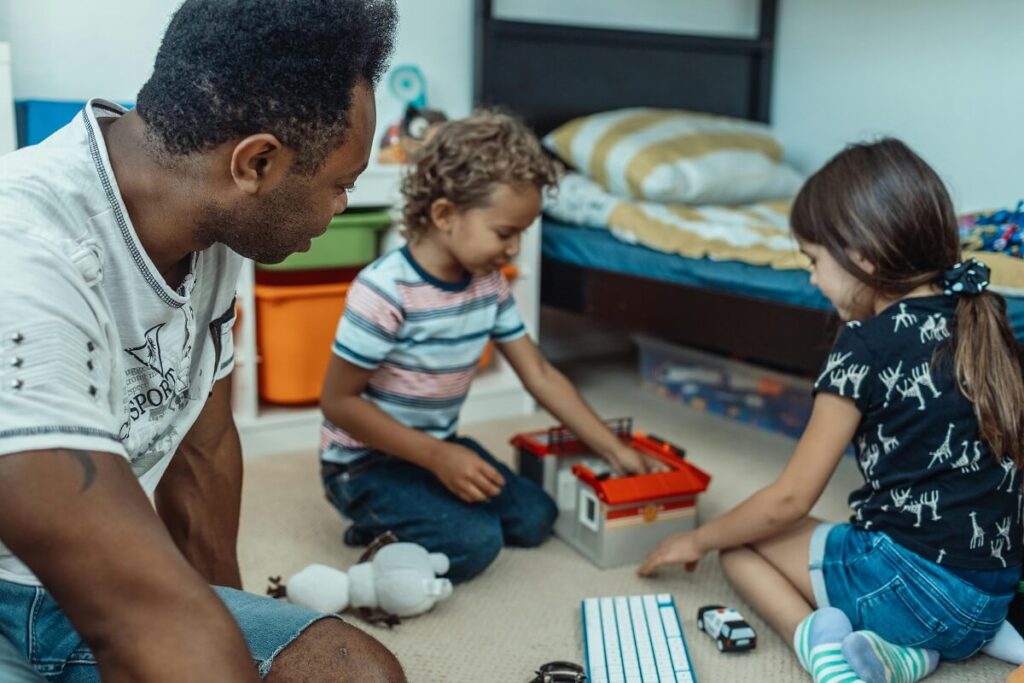
Are you concerned about your Montessori preschool child losing the progress they’ve made this school year during summer break? If so, you’re not alone. This often concerns parents, but you can take action to prevent it.
With a little extra time on your hands, you can incorporate learning opportunities into your everyday life and activities. This will keep your child engaged and make sure the wheels in their brain keep turning. Discover five easy ways to help you reach this goal.
Incorporate Math and Writing Into Everyday Life
Bringing math and writing into your home doesn’t have to be a formal task with worksheets at the dining table. By integrating these skills into your daily activities, you can make learning a fun and practical part of your child’s everyday life, preparing them for real-world applications.
For example, you can have your children keep time while you’re cooking or play board games that require them to count objects or spaces. You can also have them write birthday cards for friends, help with making grocery lists, or write labels for items around the home.
Read Together
Research shows that reading for just fifteen minutes a day can be enough to help young children build the skills they need for academic and personal success. Fortunately, this isn’t a tough goal to meet during the summer, which means it’s something you can do consistently.
Providing books that are developmentally appropriate on topics they’re interested in will help your child achieve this goal. If you’ve run out of books to read at home, take a trip to your local library for more.
Build Critical Thinking Skills Into the Day
Learning during the summer provides an opportunity to nurture critical thinking skills, which are essential for decision-making, problem-solving, and effective communication in every stage of your child’s development. Sensory bottles filled with clear liquids and various objects are easy to make, and they help preschool children learn to observe and predict.
Additionally, obstacle courses are perfect for building a child’s problem-solving abilities. You can incorporate simple puzzles and games like “I Spy” or hidden object games to help them make hypotheses, activate prior knowledge, and use information to form conclusions.
Use Chores as Hands-On Learning
Summer chores are yet another way to keep your child’s brain active when they are out of school during the summer months. You can help build real-world skills by allowing your child to handle materials you use in everyday life.
If you have multiple children, tackling chores together helps them learn how to work with others toward a common goal. They also learn how to select the right tools for a job and how to show respect for others by keeping their environment neat and clean.
Turn Playdates Into Learning Opportunities
Learning with others can help preschool children develop so many skills. If you’re setting up playdates with other children, consider turning some of these excursions into learning opportunities.
For example, children can visit the library, learn to enjoy and appreciate nature by visiting parks, or simply play with Montessori materials at home together. Any one of these activities builds not only their academic capabilities but also their capacity for leadership and empathy.
The Montessori Method Builds Year-Round Life Skills
The Montessori method provides benefits for more than just the classroom. When you use the same principles during the summer, it’s much more likely that your student will retain what they’ve learned and continue progressing toward their academic and personal goals. If you’re looking for a robust Montessori preschool program that can help your child have fun this summer while practicing critical skills, Flagstaff Montessori can serve your needs. Contact us to learn more about our summer program and how our positive, respectful, and engaging environment can support your child’s development year-round.
